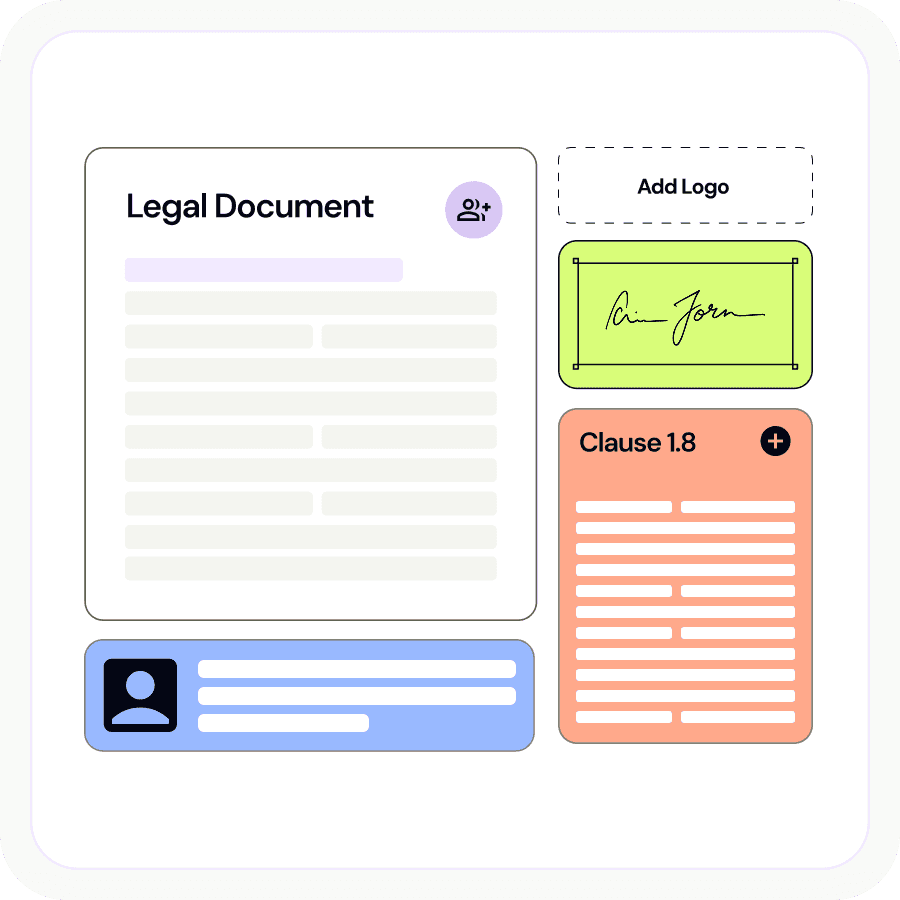Businesses that fall under the National Disability Insurance Scheme (NDIS) are there to help those dealing with disabilities live more comfortably. If you are one of them, or planning to launch an NDIS business soon, we’d like to applaud you. The best way to stay on top of your legal needs is to be informed about the legal documents for NDIS businesses.
This ensures that NDIS participants get the appropriate assistance through disability services and don’t have to worry about any legal drama. We understand that running a business is never easy and while there are things that can be deprioritized, business legals are not one of them.
Under the NDIS individuals with permanent disabilities or impairments whether they be cognitive, physical or psychosocial can receive monetary and physical support for their needs.
For most individuals that meet the criteria to receive support from the NDIS it is the first time their needs have actually been met. As an NDIS business you don’t want them to not receive support for a legal error.
So, read along to better understand what legal documents for NDIS businesses are most important.
What is NDIS business and what makes it different?
NDIS business or NDIS providers provide support coordination and services to those that are a part of the NDIS in Australia. While these businesses can also serve the open market, their main focus is providing niche services to individuals with a disability. For example, specialist disability accommodation.
As per the NDIS Code of Conduct, Australian NDIS businesses are called upon to promote the overall health, safety and wellbeing of people with a disability.
Similarly, the NDIS Compliance and Enforcement Policy, ensures these NDIS businesses comply with the appropriate standards. The NDIS quality and safeguards commission is also there to ensure that these businesses are truly there to help individuals with disabilities.
Benefits of legal documents for NDIS providers
The National Disability Insurance Scheme Act 2013 (Cth) sets out how the NDIA handles, protects and shares protected Agency information. This means that as an NDIS business and registered provider, you need to be aware of the legalities of the scheme to ensure that all criteria are met. This criteria can be found on the NDIS commission website. Similarly, the myplace provider portal allows for individual needs to be self-managed.
As an NDIS provider, it is critical for you to meet these legal requirements to ensure the scheme’s integrity.
By using legal documents, your NDIS business can ensure that:
- You act in accordance with Australian Consumer Law and the Australian Competition and Consumer Commission
- You are charging within the NDIS price limits and pricing arrangements
- You are declaring prices to NDIS participants before delivering a service and making payment requests after the service has been delivered
- You are keeping full and accurate records of support delivered in order to proactively manage any perceived and actual conflicts of interest
Using legal documents you can ensure that you are acting in a fair and reasonable manner to ensure that the people that need help and personal care get it in a timely manner.
Similarly, it shows that you do not want to purposely mislead anyone and you have a commitment to ethical practice.
Top Legal documents for NDIS Businesses
NDIS Service Agreement
NDIS businesses and registered NDIS providers need to provide their customers with a written service agreement to make it clear what is expected in regards to their disability support and their NDIS plan. For example, when and where carers are needed, what assistive technology is needed or what behaviour support is necessary.
This agreement details the services to be provided, how services are provided, rights and obligations and information regarding payment. An NDIS service agreement can outline how many times a day meals are served or what type of food is needed.
Service agreements help make sure the participant and registered provider have the same expectations of what supports will be delivered and how they will be delivered. This is really for plan management purposes.
While the National disability Insurance Agency (NDIA) is not a party to NDIS business’ service agreements with participants, it will take action if the terms do not align with the NDIS Act, NDIS Pricing Arrangements, price limits and budgets. This is because of the NDIS practice standards in place.
NDIS Complaints Policy
The NDIS Complaint Policy is designed to be used by providers of NDIS-funded services to outline the provider’s complaint management procedure.
This document formats how the service provider will accept and evaluate complaints from its service recipients. This can be by email, phone or online form, the purpose of this document is to show what the best way will be.
It also includes several provisions designed to provide additional support to recipients with special needs, as required by the NDIS (Complaints Management and Resolution) Rules, and the NDIS (Code of Conduct) Rules.
NDIS Privacy Policy
The NDIS Privacy Policy is designed to be used by providers of NDIS-funded services to outline the provider’s policies and procedures regarding the collection of personal information.
This document outlines the types of personal information collected and stored by the NDIS service provider, as well as the reasons, processes and procedures for collection and storage.
The document also provides NDIS clients with clear instructions on how to access and correct their personal information, and make complaints.
NDIS Incident Management Policy
The NDIS Incident Management Policy is designed to be used by providers of NDIS-funded services to outline the provider’s policy and procedures for handling incidents.
This provides clients and customers with a clear picture of how you manage incidents so they can better understand what is expected of your NDIS business. For example, if an NDIS recipient had a fall this document will outline how the NDIS provider would deal with it.
NDIS Cancellation Policy
The NDIS Cancellation Policy sets out your business’ policies and procedures in the event of a service booking cancellation.
The definitions of ‘adequate notice’ and ‘short notice’ comply with the default minimum requirements set out by the NDIA, but with LawPath NDIS businesses are given the ability to set more lenient standards if applicable. It is important here to be within the NDIS rules and timeframes.
This document also covers the cancellation process, including customisable fields to tailor to your business’ unique needs.
Key Takeaways
At Lawpath we understand that you just want to help!
So, let us help you so you can provide the best possible care for those in need.
Using the above-mentioned legal documents for your NDIS support business can help you ensure that you are in line with the appropriate commonwealth or state (NSW) legislation and make sure you don’t run into any legal trouble.
If you would like further information or assistance you can hire a lawyer to help you cover all your legal bases.








